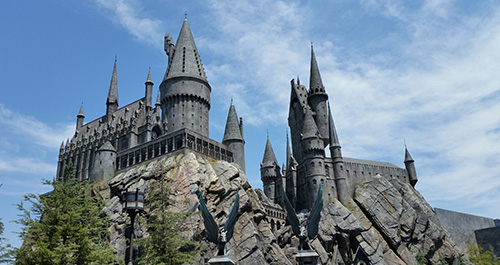Teenagers—and the things that teenagers love—are often underestimated, allowing people to dismiss the truly remarkable impact today’s teens can have on the world. People love to mock the fashion, hobbies, social media habits, music, selfie culture, and language patterns of teenagers. Take for instance Teen Vogue; despite having offered consistent, thorough coverage of social and political issues this past year, it has been derided as simply an irrelevant publication for teen girls.
The same general principle of doubt and disdain carries across to how young adult literature is often treated. Adult fiction is considered literary and refined, while YA is somehow less valuable. I offer a counter argument not based on what YA books are but on the impact they can have.
Fandoms surrounding the favorite books of teenagers have been a prominent part of culture since the Harry Potter books. Now, most well-loved series have some kind of derivative fandom surrounding them, but the Harry Potter fandom is by far the most expansive example of this. Years ago, Harry Potter fans pushed past the creation of art, parody musicals, and actual sports, and they went a step further by channeling their love for the books into the creation of an activist group.
In 2005, fans formed the Harry Potter Alliance, a real-life social justice group inspired by Dumbledore’s Army from the books. The most noteworthy part, to me at least, is that the Harry Potter Alliance is more than just a name because the choice of which issues to fight over ties directly into the spirit of the series. For example, the HPA has fought against the use of child slavery in the production of Harry Potter chocolate products (i.e., Not in Harry’s Name, a campaign that received support from J. K. Rowling and resulted in an agreement with Warner Bros.). The HPA has, among other things, provided training in youth leadership as well as tool kits for the informed discussion of inequality in its various forms—it has donated hundreds of thousands of books to kids in need across the world. The Harry Potter Alliance is a group started by fans who loved the series growing up, took its messages, and put them into action.
Another fan community—eventually known as Nerdfighteria—sprang up around the Vlogbrothers YouTube channel by John and Hank Green in 2007. The group was born from John Green’s YA readership and Harry Potter fans (due to Hank’s early Harry Potter–themed videos). In addition to their successful annual charity called Project for Awesome, the Vlogbrothers also support This Star Won’t Go Out, a charity founded in memory of Esther Earl, the teenage girl who inspired John Green’s The Fault in Our Stars. Teenagers make up the vast majority of this audience and are the driving force behind the group’s charity work. (Around 75 percent of Nerdfighteria is under twenty-one.)
My point is not just that books can be a call to action. More than that, young adult readers want to be called to action and effect major change.
The Harry Potter and John Green readerships are some of the largest book fandoms out there, and since the foundation for such action has been built, there is an incredible amount of potential for further teen activism. I’m looking toward books like Nicola Yoon’s best-selling novel, The Sun Is Also a Star, a YA romance about a girl who falls in love the day she and her family are about to be deported. Yoon is a team member of the We Need Diverse Books organization, and the book (out since November 2016) is a National Book Award finalist, with the platform, motivation, and fan base perfectly poised for activism.
Dystopian novels are all the rage right now, and in dystopian novels, it’s always the young adults that rise up and make change. I think this may be true in real life as well.

